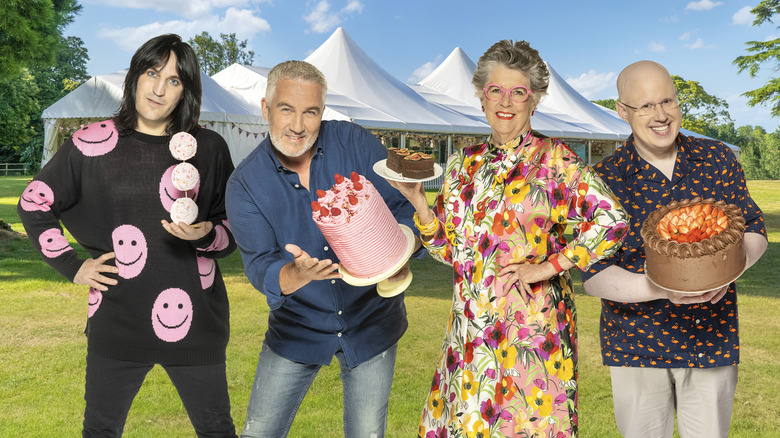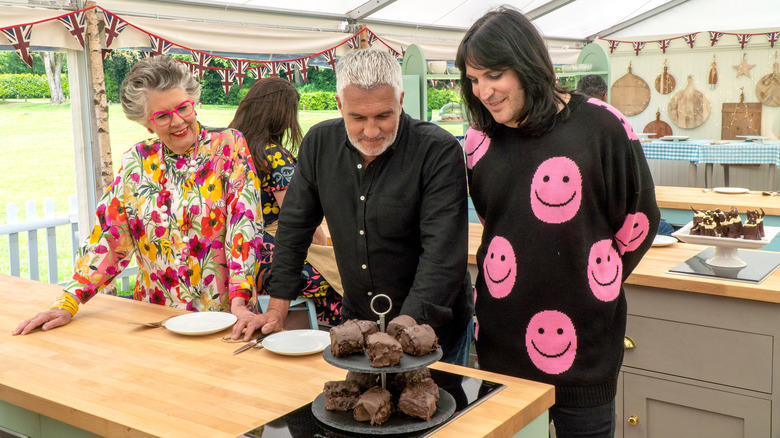The Great British Baking Show Cuts Nationality Theme Weeks Amid Backlash From Fans
Over its 13 seasons, "The Great British Baking Show" has charmed audiences with inviting hosts, idyllic settings, and mouth-watering bakes. Recently, however, the show has been under fire for its offensive, nationality-themed weeks, notably last season's "Mexican Week." The episode featured hosts Noel Fielding and Matt Lucas garbed in sombreros and serapes, shaking maracas, and telling stereotypical jokes in fake Mexican accents. In the episode, Fielding also asked, "So, is Mexico a real place?" Lucas' response was, "I think so. I think it's like Xanadu." Throughout the episode, contestants also mispronounced the names of typical Mexican dishes and ingredients, fueling heavy public backlash with fans and critics accusing the show of racism and cultural insensitivity.
But this isn't the first controversy "The Great British Baking Show" has faced over cultural insensitivity. In 2020, their "Japanese Week" episode also received backlash for insensitive comments and mixing up various Asian cultures, where contestants steamed Chinese bao and made Indian curry. After facing criticism, the show's executive producer, Kieran Smith, acknowledged in an interview published by The Guardian, "We didn't want to offend anyone but the world has changed and the joke fell flat. We're not doing any national themes this year."
Hence, "The Great British Baking Show" is reverting back to its roots, and its 14th season will focus on more traditional themes such as "Cakes, Biscuits, Bread, Patisserie, Chocolate, plus Party Cakes," and different challenges. As Smith told The Guardian, there will be no more nationality theme weeks moving forward.
A fresh start with a new host after a missed opportunity
The producers of "The Great British Baking Show," Love Productions, are opting for a change in direction by focusing on "traditional" baking themes. While they intend to leave behind the controversial nationality-focused weeks, this shift aims to reinvigorate the show's reputation. New host Alison Hammond, replacing Matt Lucas, brings a touch of bubbly warmth and relatability that the show hopes will resonate with viewers. Faced with their recent controversies, "The Great British Baking Show" is clearly eager to mix up a new recipe for success.
While returning to classic baking themes may be perceived as a safe play, it's also a potentially missed opportunity for the show to celebrate and educate about global cultures. Instead of scrapping nationality-themed episodes, the show could take the opportunity to enrich them through consulting with chefs, food historians, or cultural experts from the respective cultures being showcased to ensure a more authentic and respectful representation. For instance, a "Brazilian Week" can start with the proper pronunciation of pão de queijo (pronounced "pown-deh-kay-zho"), and incorporating more BIPOC (Black, Indigenous, and People of Color) team members and culturally relevant guest judges could provide a deeper understanding and appreciation that has been absent thus far. "The Great British Baking Show" could have pioneered how reality shows navigate the delicate balance between cultural appreciation and cultural appropriation, relying not on stereotypes, but on the beauty, delicious flavors, and ingredients different cultures can offer.

